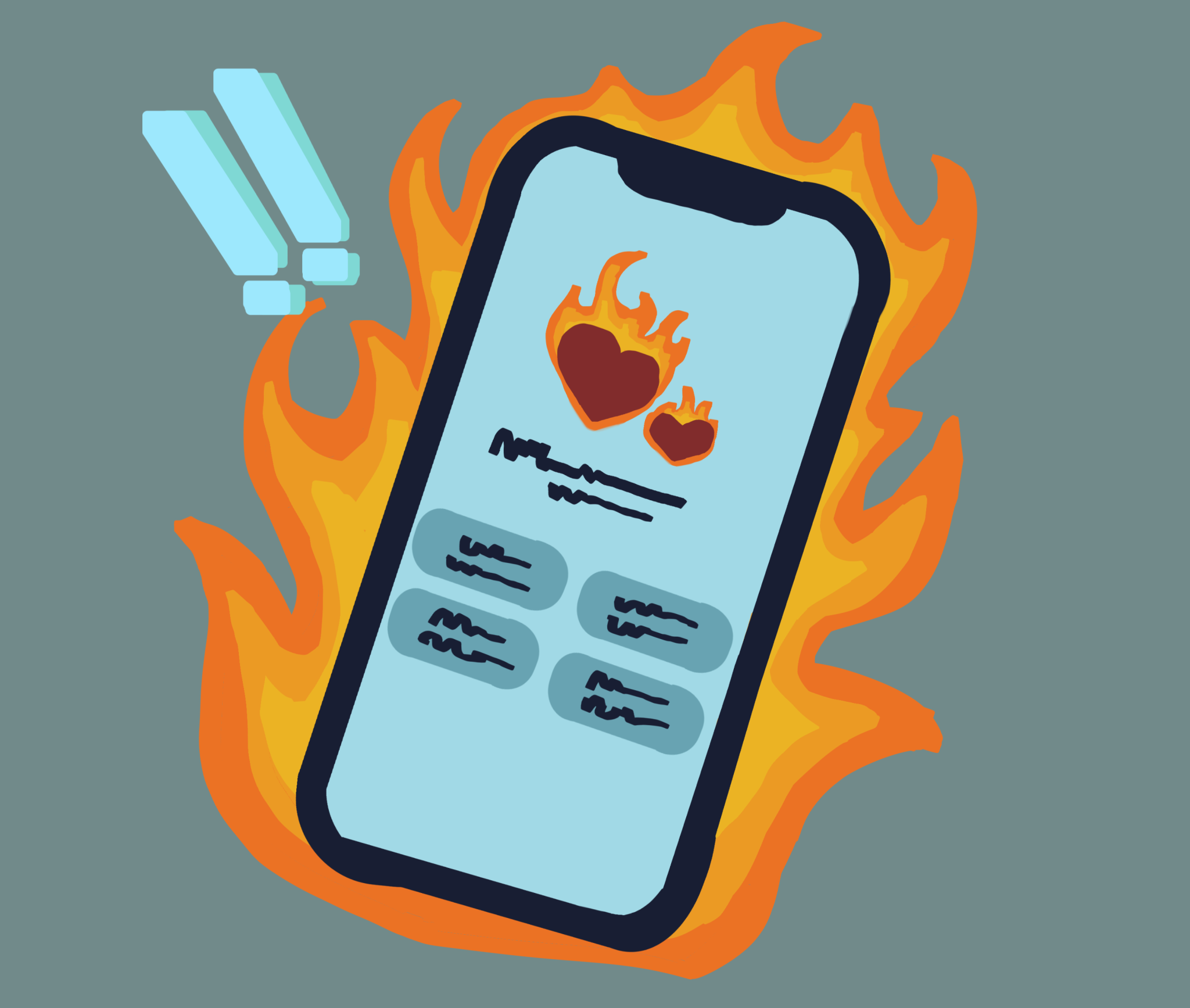“See who likes you,” is the app description for Gas, a free app targeting high schoolers interested in popularity. It was released to iPhone users in August of 2022, but only during mid-November did it gain popularity at Berkeley High School. The app quickly rose in popularity over a short period, but many users quickly found it problematic or boring.
First time users join under their school which allows an automatic recommendation of peers which they can add as “friends.” Every time users open the app on their phone, a prompt pops up with the names of four friends listed below. Users then choose the person they think best suits the prompt, and following, the person chosen will receive notification of their nomination, represented by a flame emoji. The voter stays semi-anonymous — only their gender is revealed.
BHS student Ayush Shah said, “The prompts are cool, fun, and positive. It's a cool way to spread positivity to people and to those who may need it.” The prompts are endless, including, “Has main character energy,” “Sassy yet classy,” “Feels comfortable to fart around,” and more. Many have flirtatious implications, for example, “Can’t stop thinking about them.”
This causes the app to be, for some, a vehicle for compliments. Rose Hara, a sophomore in Arts and Humanities Academy (AHA), said, “I think it's a huge ego boost for a lot of people that use the app.”
Having a secret fan and receiving praise on fashion choices or sense of humor can brighten someone's day.
The meaning of the prompts is open for interpretation. Hara elaborated, “I know a lot of people who could take one of these prompts and overthink it and get insecure … but I'd also know somebody who could take the exact same prompt and be like, oh my god I am so cool.”
Ava Quandt, a sophomore in Berkeley International High School (BIHS), had a negative experience with the Gas app. She received a flame emoji that stated, “I would organize a search party if you don't text back.”
“It makes me feel like this app is a joke because people just pick random things for people,” Quandt said. “This was probably from someone who doesn't even know me, yet it still affects me emotionally.”
Users have the option to see who voted for them by paying seven dollars a week, activating “God Mode.” This includes seeing who voted for them, who likes them, and unlimited hints. Without this feature, users can deduce to some extent who chooses them by looking at who they have added and the gender of the person that chose them. Under the use of God Mode, voters unaware of the option are at risk of a breach of presumed privacy. Users like Hara would rather spend that money on lunch or something more practical than social validation. She said, “I don't really know what you're gonna get out of knowing who voted for you.”
But is Gas here to stay? Hara said, “I think it has a very short shelf life and I feel like it's dying down.” Many users only use it once or twice a week which is significantly less in comparison to Instagram or other social media platforms. The app solely relies on polling to entertain users which is repetitive and disengaging. In addition, users are required to wait an hour after completing twelve prompts until receiving more. Naomi Nickolaus, a senior at BHS said, “It's difficult to get addicted to because it stops you. I don't think it'll take off because it's really easy to get bored of.”
A new app coming to the market is always eventful and as more social media apps are released it's harder for them to stand out and hook consumers. BHS students aren’t latching on to Gas in the way they did, for example, the innovative social media app BeReal. How many more cycles of downloading and deleting new apps will there be until one takes off? Whether users use the app to joke with friends or get attached to compliments, the concept fails to leave a lasting flame of passion among BHS students.





